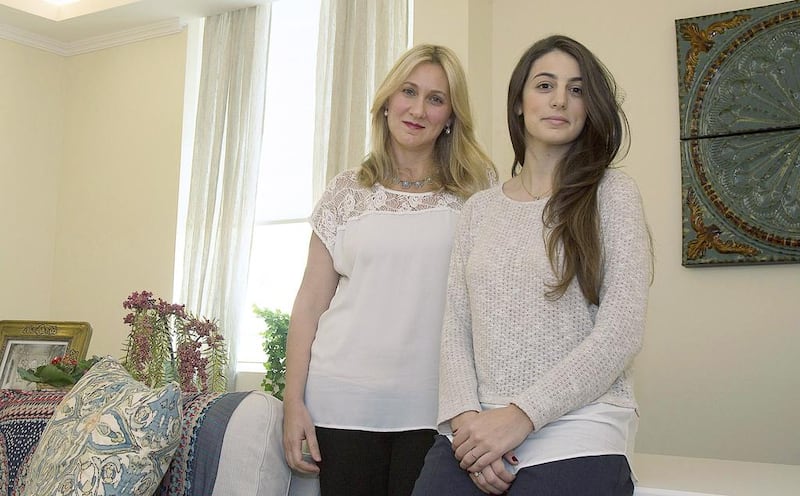ABU DHABI // Experts say young people are using increasingly creative ways to get high – including smoking crushed painkillers in dokha pipes.
Elena Andriotis, a clinical psychologist at the Carbone Clinic of Dubai, said some teenagers – afraid of the damming legal consequences of being caught with hard drugs – were experimenting by mixing off-the-shelf products in an attempt to get the same high as they would by using illegal substances.
“It seems like a variety of young adults are aware of the risk factors that can be associated with substance use in this region and they fear approaching individuals who could provide them with illegal substances,” she said.
“Nevertheless, there seems to be a trend to create mixtures of legal substances and prescription painkillers to get effects similar to illegal substances.
“Breaking down Tramadol into the dokha tobacco seems to be one of those trends.”
Dr Deema Sihweil, clinical director at the psychology centre at the Carbone Clinic, has also come across university students who experiment with off-the-shelf or off-label medication.
“In my practice, I am often told about how illicit drugs are synthetically catalysed by combinations of over-the-counter substances,” she said.
“Also, because certain drugs, like LSD, come in liquid form, tiny amounts can be easily concealed and transported, leading to increasing sales and illegal use.”
Dr Sihweil said it was a universal phenomenon for university students to experiment with substances.
“University students are a highly vulnerable group that experiences high levels of academic stress, social pressures, identify formations, separations from family and worry about their futures,” she said. “These intense developmental stages of life make people more inclined to find relief and experience relaxation or euphoria.
“Unfortunately, many painkillers, medications and their highly concentrated and often poisonous derivatives that form illicit drugs, like amphetamines, opiates etc, are readily available and can be easily misused and manipulated to produce intense and quick highs.”
Figures on drug abuse in the UAE are not readily available but last year Sharjah Police said 925 school pupils in the emirate had been involved in drug cases in the previous three years. In Dubai, 432 people were arrested in 314 drug cases in the first quarter of 2015, with those aged 21 to 25 most frequently implicated.
Earlier this year, Dr Ali Al Marzooqi, public health director and research director at the National Rehabilitation Centre told The National that children as young as 10 are experimenting with drugs.
Dr Sihweil said that there were many side-effects of abusing drugs.
“First and foremost, it is highly likely that the drugs are laced with other poisonous substances, so when students think they may be smoking something ‘pure’ and ‘natural’, they really have no idea of the additives – chemicals, pesticides – that the tobacco or plant may contain,” she said.
“When these poisonous chemicals are smoked, the drugs reach the brain at a faster speed and can cause major damage to the delicate and sophisticated neurons and pathways; one, producing an intense high, but two, creating damage that one can never know exactly how detrimental.
“In the long run, I have seen people who have abused drugs of any form, who have experienced delayed withdrawal syndromes, depression or anxiety that seems to be unrelenting and often correlated to early drug use.”
Dr Lucky Das Gupta, a neurologist at Burjeel Hospital in Abu Dhabi, has also come across many university students who abuse or misuse drugs.
Many, he said, were addicted to the prescription painkiller Tramadol.
Other patients have ended up in the hospital’s accident and emergency department after overdosing on illegal substances, such as cannabis or opiates.
“Sometimes they come in in a very bad condition,” he said. “Most of these people are young people.”
Often, he said, youths experiment with illegal substances because of peer pressure.
“It is not due to stress – it is bad company,” he said. “If one uses it, others try it and a habit will develop.”
Illegal substances can be extremely addictive, with damaging and even fatal effects, said Dr Gupta.
He mentioned the case of a mother who pleaded with him to help her son, who was abusing drugs in his locked room.
Dr Gupta said he spoke to the son, a 21-year-old Arab. “He told me, ‘doctor, do not interfere, it is my life’.” The doctor said he found out weeks later that the son had died from a drugs overdose at his home.
“People die because of drugs,” Dr Gupta said. “Young people.”
newsdesk@thenational.ae





